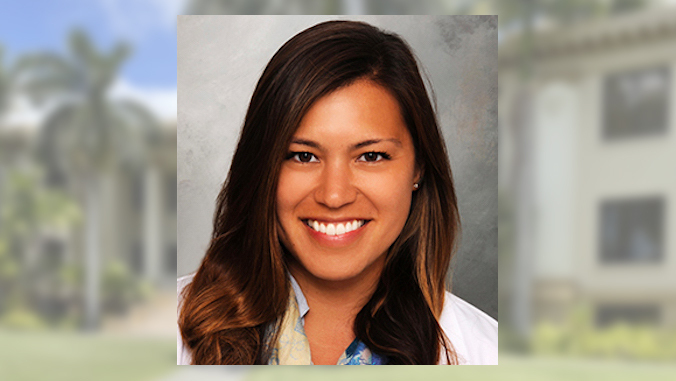
University of Hawaiʻi Cancer Center Associate Researcher Jami Fukui, has been selected to serve on the National Cancer Institute (NCI) Breast Cancer Steering Committee (BCSC), which addresses areas of unmet clinical needs, important unanswered clinical questions and potential approaches to disease treatment in breast cancer.
Fukui represents the NCI Community Oncology Research Program (NCORP), a national network that brings cancer clinical trials and care delivery studies to people in their own communities. She hopes during her three-year term to help shape how breast cancer clinical trials are prioritized, specifically for diverse and underserved populations throughout Hawaiʻi and the Pacific.
Fukui will play an active role in the design, development and review of breast cancer clinical trials to help ensure appropriate studies for patients in Hawaiʻi.
Minority populations are often underrepresented in clinical trials, leading to a lack of relevant studies for Hawaiʻi’s diverse, multiethnic population. As an NCORP site, the UH Cancer Center is committed to offering suitable cancer clinical trials affecting Hawaiʻi’s diverse population, especially those who bear a disproportionate burden compared to others. Fukui will play an active role in the design, development and review of breast cancer clinical trials to help ensure appropriate studies for patients in Hawaiʻi.
According to data collected from the Hawaiʻi Tumor Registry (PDF), breast cancer remains the most common cancer among women in Hawaiʻi. Through the right clinical trials, researchers will be able to address breast cancer disparities, leading to improved patient outcomes.
“In clinical practice, we see the real-world aspects of breast cancer care, and this can directly inform national thought leaders how to approach clinical unmet needs,” said Fukui.
Results from Fukui’s participation in the BCSC may lead to advanced developments in minority breast cancer clinical trials that will improve the outcomes of breast cancer in Hawaiʻi and the Pacific.

